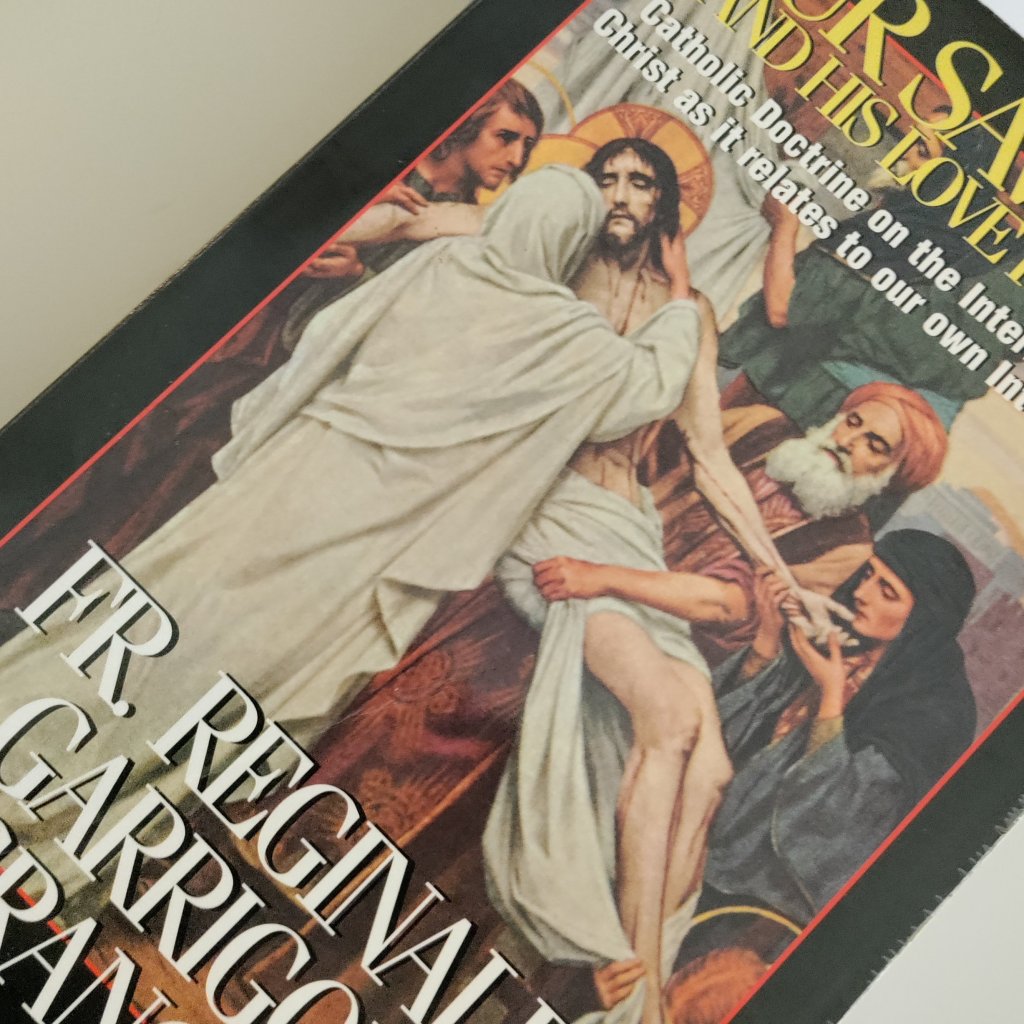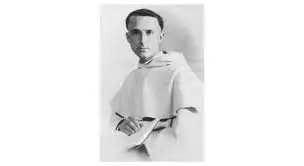“Our Savior and His Love for Us“* The greatest Thomist mystical theologian of the 20th century, who mentored so many*, in this important volume leads us beyond the corruptions of too much mere academic Christology today into the deep of Gospel truth.
“The need of reflecting on the interior life of the Savior is particularly great in the present period of general confusion, when individuals and entire peoples misunderstand the ultimate end of human life and forget the profound difference between perishable, material goods and immutable, spiritual goods.
Material goods divide us in the measure that we eagerly seek them; for they cannot belong at one and the same time to everyone as a whole and to each one in particular. A given house and lot cannot belong integrally and simultaneously to several men any more than the same territory can belong to several nations.
On the other hand, as St. Thomas, following St. Augustine, has often remarked: spiritual goods can belong at the same time and in plenitude to all and to each; and they unite us the more in the measure that we seek them. Thus, each one of us can live by the same truth, by the same virtue, by the same God, by the same Christ our Savior.
Every Christian should ultimately be able to say, as did St. Paul: “To me, to live is Christ.”
As St. Thomas remarks in explaining these words, a man’s life is what interests him most. It is by living that his faculties reach fulfillment. It is to life that his existence is dedicated. For example, the Angelic Doctor adds, for some, to live is to hunt; for others, it is study, intellectual activity; for others still, to live consists in exterior activity. For a soldier, to live is to engage in military service. Finally, to the Christian, to live-once he has become fully conscious of the grandeur of his destiny-is Christ. This is particularly true of the priest, the apostle, whose mission it is to reveal to others the mystery of Christ.

Indeed, it is not enough for us to understand Christ’s message. We must also put it into practice. Jesus Himself has told us in the conclusion of His Sermon on the Mount:
“Everyone therefore that heareth
these My words and doth them, shall be likened to a wise man that built his house upon a rock. And the rain fell and the floods came and the winds blew, and they beat upon that house, and it fell not for it was founded on a rock.
And everyone that heareth these My words and doth them not, shall be like a foolish man that built his house upon the sand. And the rain fell and the floods came and the winds blew, and they beat upon that house, and it fell, and great was the fall thereof.”
In his commentary on St. Matthew, St. Thomas remarks: The rock on which we must build signifies Christ Himself: as St. Paul tells us, the spiritual rock is Christ. But there are those who listen to Christ’s message only in order to know it (without putting it into practice); they build on the intelligence only, and that is to build upon the sand.
Others listen to His message in order to put it into practice and to love God and their neighbor; these build on rock…”
“From theology to faith itself, since the latter is far superior to the former.”— St. Thomas
“In an earlier work, Providence, we sought to explain, according to revelation and theology, the nature of divine Providence, its extension and infallibility, and the way we must confidently abandon ourselves to it by fulfilling our duties a little better each day. We have also shown in that work how conformity with God’s signified will permit us to abandon ourselves to His will of good pleasure even before it has been manifested to us. Thus, “fidelity and abandonment” is a maxim that preserves the equilibrium of the interior life in the face of two opposing deviations, namely, restless, sterile agitation, and lazy, quietistic indifference.
This book on the Savior is in a sense the sequel to the one mentioned above. Who, indeed, if not the Savior has made the correct notion of Providence, so often expressed in the Old Testament, prevail over the notion of destiny or of an unknown and irresistible linkage of events and causes?

Who has liberated men from the clutches of blind fate, spoken of by the Greek poets? Who has enabled us to free ourselves from the bonds of fatality, of chance or ill fortune, of life’s countless worries, of slavery to the passions? Who, if not He whom we call the Savior?
The greatest Greek philosophers sought deliverance in contemplation of the Sovereign Good, which they conceived variously, depending on whether they were more or less idealistic. But they admitted that this contemplation of the Sovereign Good was accessible to only a very few men. They themselves attained to it only for a few fleeting moments; and if they spoke of the life to come, it was in terms of a beautiful possibility. Even Plato expressed himself thus in the Phaedo, as did Seneca in one of his Letters to Lucilius (102).
The problem of men’s individual destinies remained obscure, and the necessity resulting from the very nature of things weighed heavily on men’s souls. There was nothing to do but to be resigned to it. “The philosophers do not free us from it. Quite the contrary, they buttress by their doctrines the stern necessity of universal laws.” According to the Stoics, fate leads those who submit to her, but carries along in spite of themselves those who resist.
The determinist doctrines from the Orient added still more to the weight of destiny. The Savior came not only to deliver us from the stranglehold of fate, from the irresistible chain of known and unknown causes, and from the blows of misfortune; He came also to deliver us from sin, from injustice with respect to God and men. He came to justify us and to promise us, no longer as a beautiful possibility but as an absolute certainty, not only future life in the natural order, but eternal life in the supernatural order, participation in the intimate life of God: a life in which we shall see Him as He sees Himself and love Him as He loves Himself. Belief in destiny has been superseded by faith in God’s love for us and faith in Providence:
“God so loved the world, as to give His only-begotten Son; that whosoever believeth in Him, may not perish, but may have life everlasting.”

The weight of destiny has been lifted, and our individual destinies are brighter. The Savior brings deliverance to all who do not through lust or pride resist the light and the grace of God. It is from this point of view that we shall consider the mystery of the redemptive Incarnation. On several occasions we have explained to theological students St. Thomas’ treatise on the Incarnation, making use of his principal commentators. We judge it useful for our present purpose to extract certain portions of this treatise that bear directly on the personality of the Savior, His interior life, and His love for us, and to present this material in a form accessible to all interior souls. In our presentation we shall go back as much as possible from theology to faith itself, since the latter is far superior to the former.”
Yves Congar O.P. said, “He impressed me very much with his profound grasp of the spiritual life, but most of all by his strong sense of affirmation.” Moreover, “He made a profound impression on me. Some of his sermons enthused me and overwhelmed me with their clarity, their rigor, their fullness, their purity of lines, their spirit of faith allied to an impressive intellectual rigor.”
“While it is certainly true that Garrigou was devoted to safeguarding orthodox Catholic theology and the Thomistic tradition, “those who knew Garrigou speak of his single-minded pursuit of the truth. He did not cultivate a personal animus against anyone. Nor did he practice character assassination or attempt to vilify his discussion partners. One looks in vain for an ad hominem argument in Garrigou’s numerous publications.”
________
* Our Savior and His Love for Us. Tan Books. Available via Amazon, Catholic and other books stores.
** including numerous Popes
— Josef Cardinal Ratzinger. Biblical Interpretation in Crisis.


